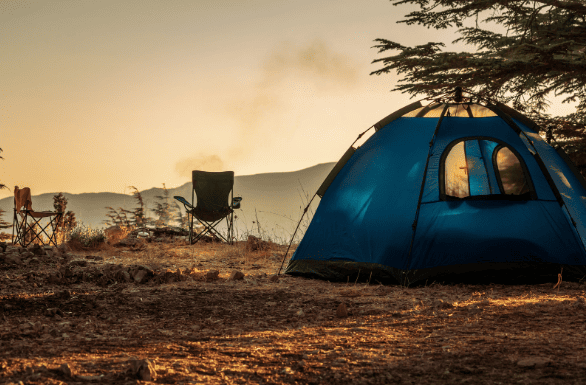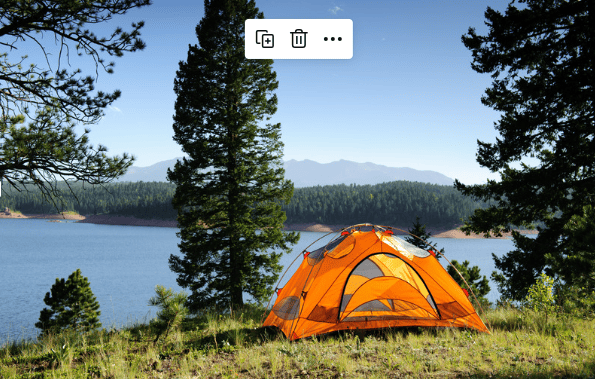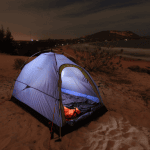
The allure of the great outdoors is undeniable. From the serene ambiance of a quiet woodland to the rhythmic lapping of waves on a lakeshore, nature has a way of captivating our hearts and souls. But, as we escape the hustle and bustle of city life, it’s essential to remember that the wilderness isn’t just a personal playground. It’s a shared sanctuary, with its own unspoken code of conduct. These unwritten rules, often referred to as “camping etiquette,” ensure that every camper enjoys their experience while preserving the beauty of nature for generations to come.
Leave No Trace
Perhaps the golden rule of camping etiquette is the “Leave No Trace” principle. As the name suggests, the goal is to minimize your impact on the environment. This means packing out everything you bring in – from food wrappers to used tissues. It’s not enough to merely hide trash under rocks or in holes. Nature is not a garbage dump, and leaving waste behind can harm wildlife and ruin the experience for future campers.
Keep Noise Levels Down
Remember, many people head to the great outdoors for peace and tranquility. While it’s okay to enjoy your time and have fun, it’s crucial to be mindful of your noise levels, especially during early mornings and late evenings. Keep music volume modest, and if you’re traveling in a group, try to maintain low conversation tones, especially if other campers are nearby.
Respect Campsite Boundaries
When setting up camp, it’s tempting to spread out and claim a vast swath of territory. However, it’s essential to be considerate of others by sticking to designated camping areas and not encroaching on another camper’s space. Give your neighbors room to enjoy their patch of wilderness. After all, everyone is there to relish the beauty and space nature offers.
Control Your Campfire
A roaring campfire is a staple of the camping experience, but it’s also a significant responsibility. Always check local fire regulations before starting a fire, as some areas might have fire bans due to dry conditions. When permitted, use established fire rings or pits, keep your fire size manageable, and never leave it unattended. Before turning in for the night or leaving your campsite, ensure your fire is completely extinguished. This means dousing it with water and stirring the ashes until they’re cold to the touch.

Keep Wildlife Wild
It’s always a thrill to spot wildlife during a camping trip. However, it’s crucial to remember that these animals are not pets. Feeding them can make them dependent on humans, alter their natural behaviors, and even pose a danger. Keep a safe distance, store food securely, and admire from afar. Let’s ensure that our wildlife remains wild and unharmed.
Right to Passage: Stick to the Trails
The trails provided in camping and hiking areas have been carved out for a reason. They help reduce the environmental impact on the flora and fauna of the area. Straying off the path might seem like a great way to explore, but it can trample sensitive vegetation, disturb wildlife habitats, and lead to erosion. By sticking to designated trails, you not only ensure your safety but also protect the natural beauty that drew you to the location in the first place.
Shared Facilities: Keep Them Clean
Many campsites provide shared amenities such as restrooms, showers, and even cooking areas. Always leave these facilities as clean, if not cleaner, than you found them. Remember, you’re not the only one using them. A small act like wiping down surfaces or picking up any litter makes the next camper’s experience just as enjoyable as yours. Think of the golden rule: Treat others (and their spaces) as you’d like to be treated.
Pets on Leash: Respect Others and Wildlife
If you’re camping with your furry friend, it’s crucial to keep them on a leash. Even the most well-behaved pets can become unpredictable in a new environment. Keeping them leashed ensures they don’t wander into another camper’s site, disturb wildlife, or get themselves into dangerous situations. Always pick up after your pet and dispose of their waste properly. A shared natural space means everyone enjoys it, including the animals that call it home.

Conclusion
Camping is a treasured activity that provides a much-needed respite from our daily lives. It offers an unparalleled opportunity to connect with nature, rejuvenate our spirits, and create lasting memories. By adhering to these unwritten rules of camping etiquette, we not only ensure our own enjoyment but also contribute to a respectful and sustainable outdoor culture. As we pitch our tents and gaze up at the starlit sky, let’s remember that with the privilege of enjoying nature comes the responsibility of protecting it. Happy camping!






